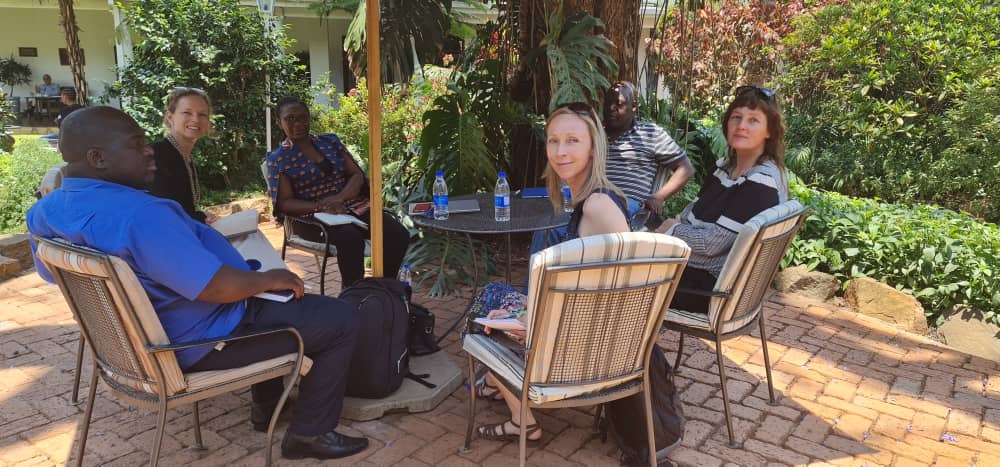HAND in Hand Sweden delegation, led by Head of Programs Anna Bertmar Khan, was in Zimbabwe recently on an exchange visit to establish the impact of activities spear-headed by its local sister network member Hand in Hand Zimbabwe.
Some of the delegation members included Katja Frolin, who is Program Manager responsible for Zimbabwe, Frida Lundstrom, Project Controller, and Jacqueline Ernerot, Institutional Fund-raising Manager.
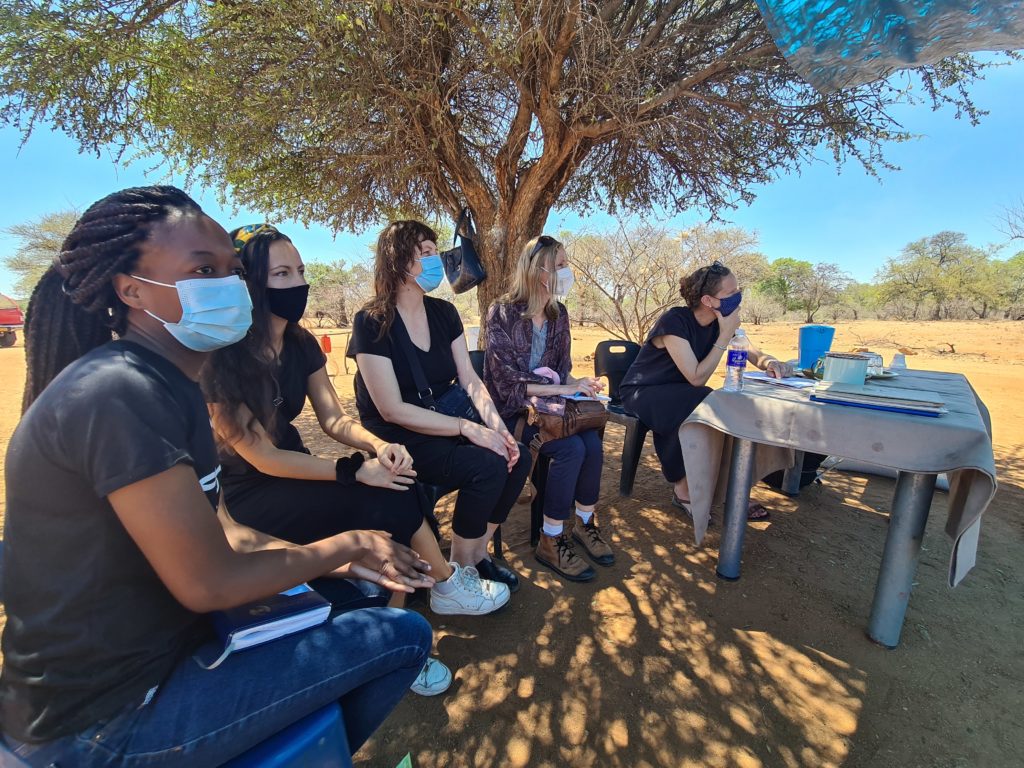
From the Hand in Hand Zimbabwe (HHZ) office, the team consisted of HHZ Chief Executive Officer Felix Tete, Director of Programmes Emmanuel Makiwa, Finance and Admin Manager Daniel Sinkula and Gwanda Area Manager Sabelo Marupe.
In Gwanda district, the team visited three Self-Help Groups (SHGs) enterprises, namely Ikusasa Lethu, Progressive Garden and Sekusile Floor Polish Cluster, while in Chirumanzu district they visited Zvakanaka and Budiriro SHG’s as well as Mazvimba Primary school, who benefited from the Radiohjalpen WASH project.
Some of the projects are under HHZ’s Community Upliftment, Market Linkages, Job Creation and Green Enterprises Projects.
HHZ assisted these groups with training on production, enterprise development, business management, commodity association, technical skills, and horticulture management, among others.
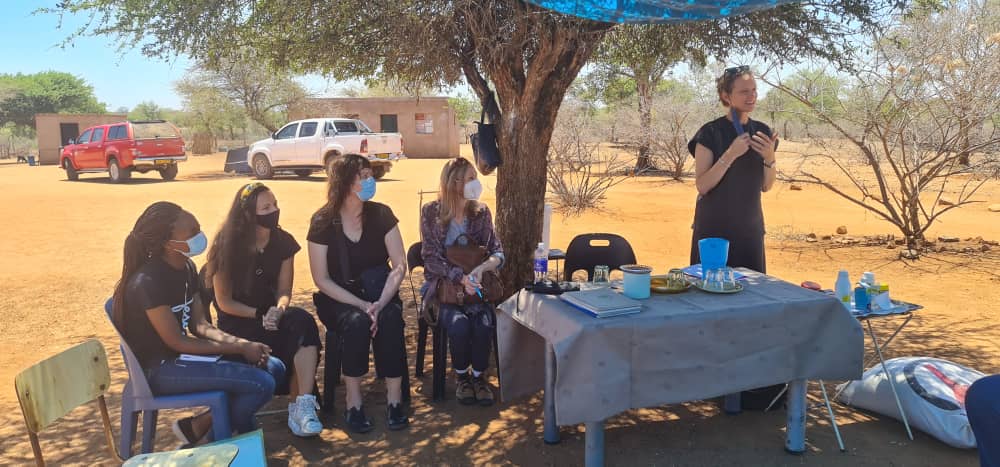
The organisation also assisted with resources in some cases.
The delegation toured Ikusasa Lethu, a sheep rearing project situated in Ward 16, Kafusi, Gwanda district. The group, consisting of eight members, got funding amounting to US$1 700 after winning a competition organised by HHZ in 2020.
They used the money to buy 30 female sheep (local type), a male dorper breed, feed, vaccines and building materials for a sheepfold.
The group was established in 2019 as members sought poverty alleviation and self-sustenance.
“We want to have a dorper breed. Currently, we have 14 cross-breeds. We chose this type of breed (dorper) because it fetches out a lot of money in the market. It is also resilient. HHZ assisted us with knowledge through training,” Ikusasa Lethu Secretary General Mncedisi Ndlovu said.
“As a group, we are doing monthly savings of R50 per month per person. We want to review the figure to R100. Our lending rate to members is 10% interest rate. We were taught this by HHZ. The organisation also trained us on fodder production.”
Currently, the group has 60 sheep and about 12 of those are ready for the market.
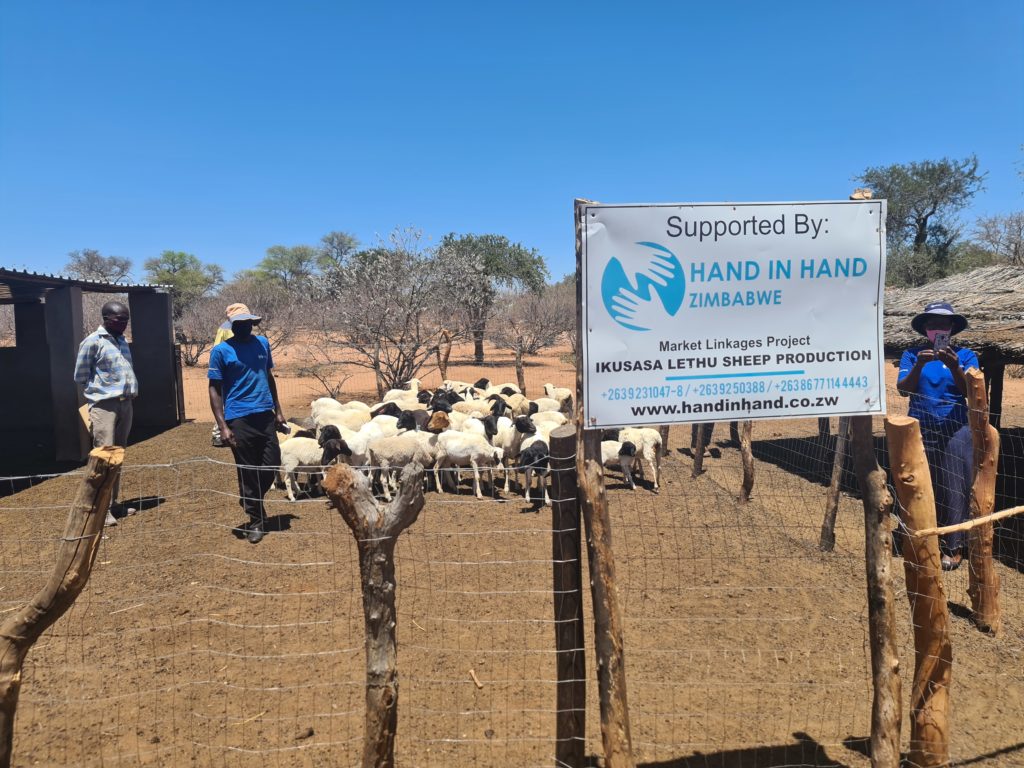
“We want to establish butcheries where we can sell sheep meat all over the country and also export it,” Ndlovu said.
Ndlovu said as sheep producers, they were facing challenges such as outbreak of diseases (tick-borne), drought, water and grazing shortages as well as transport challenges.
Ward 16 Councillor Jairos Mahopolo commended HHZ for the support, saying the project will go a long way in supporting the families and alleviating poverty in the community. He acknowledged that water was a serious challenge in the area and called for well-wishers to assist in the drilling of a borehole.
The team also visited Progressive Garden in ward 14.
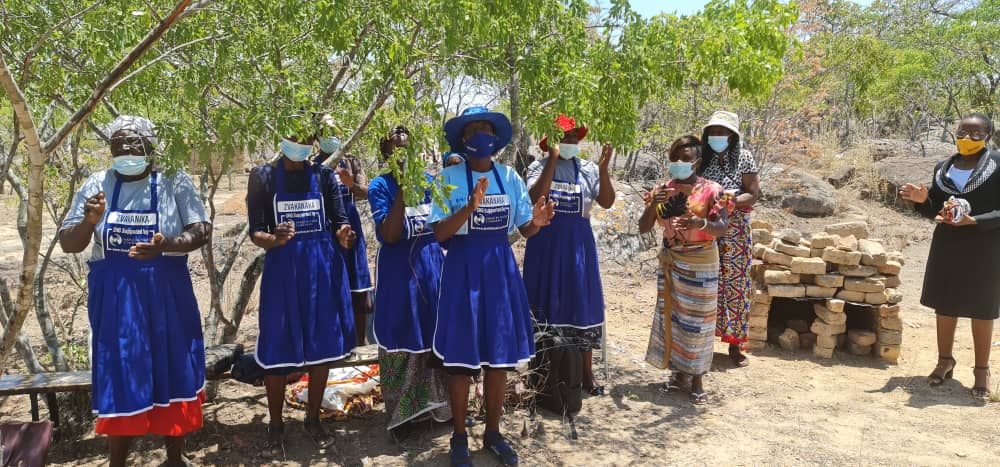
Consisting of 43 members, 23 women and 10 men, the group is into the horticulture business, producing various types of vegetables and indigenous fruits.
Each member is given four by 50 metres beds to grow vegetables.
“We sell tree seedlings as well as various types of vegetables and indigenous fruits. We are now able to generate income to buy food and pay school fees for our children. Before we got support from HHZ, we were struggling to make ends meet,” Getrude Ndlovu (46) of Progressive Garden, said.
As a widow, she said the project has changed her life completely. For instance, from the butternuts and tomatoes which she harvested recently, she got about R11 000.
HHZ donated a solar-powered borehole to the group.
Village Head Christopher Magwala, whose jurisdiction the project is situated, commended HHZ for bringing development into the community. He also said the borehole drilled by the organisation will go a long way in alleviating water challenges in the area.
Down in Garanyemba village in ward 13, the team visited Sekusile Floor Polish Cluster, a group consisting of 17 members including one man.
The group, which started in 2020, makes floor polish for sale in the surrounding communities including schools, and shopping centres, among others.
On average, the group produces 37 by 300ml tins of floor polish per month.
Between September and December last year, the group realised a profit of R11 600.
“Our aim is to penetrate bigger markets as well as registering our company by January next year. We also have a vision to start making our own paraffin and we have started the process,” the group’s secretary, Ntombizodwa Nyathi, 44, said.
Zvakanaka SHG was formed in 2019 with 12 female members. The SHG identified an opportunity in food processing, focusing on nutritional porridge. The opportunity was driven by community needs and availability of resources. The SHG is actively participating in Internal Savings and Lending (ISALs) and saving US$10.
Mazvimba Primary School is one of the schools under the Radionhjapen WASH project. The school has an enrolment of 378 pupils of which 176 are girls and 202 boys. A total of 90 students (50 girls and 40 boys) have been mobilized into health and nutrition clubs. The schools’ supplementary feeding program has helped at least 204 pupils.
Budiriro SHG, formed in 2021 with 20 members (16 females and 4 males) and saving US$1 a month, is into horticulture. The SHG has been supported with a solar powered water system for the garden. The establishment of a horticulture enterprise is for addressing community challenges.
Khan thanked the villagers for taking up the projects for the transformation of their livelihood as well as for sustenance and commercial purposes.
Makiwa said their projects have a WASH (water access, sanitation, and hygiene) component.

